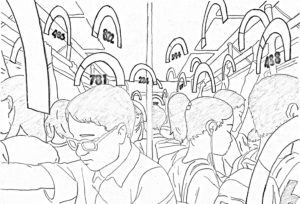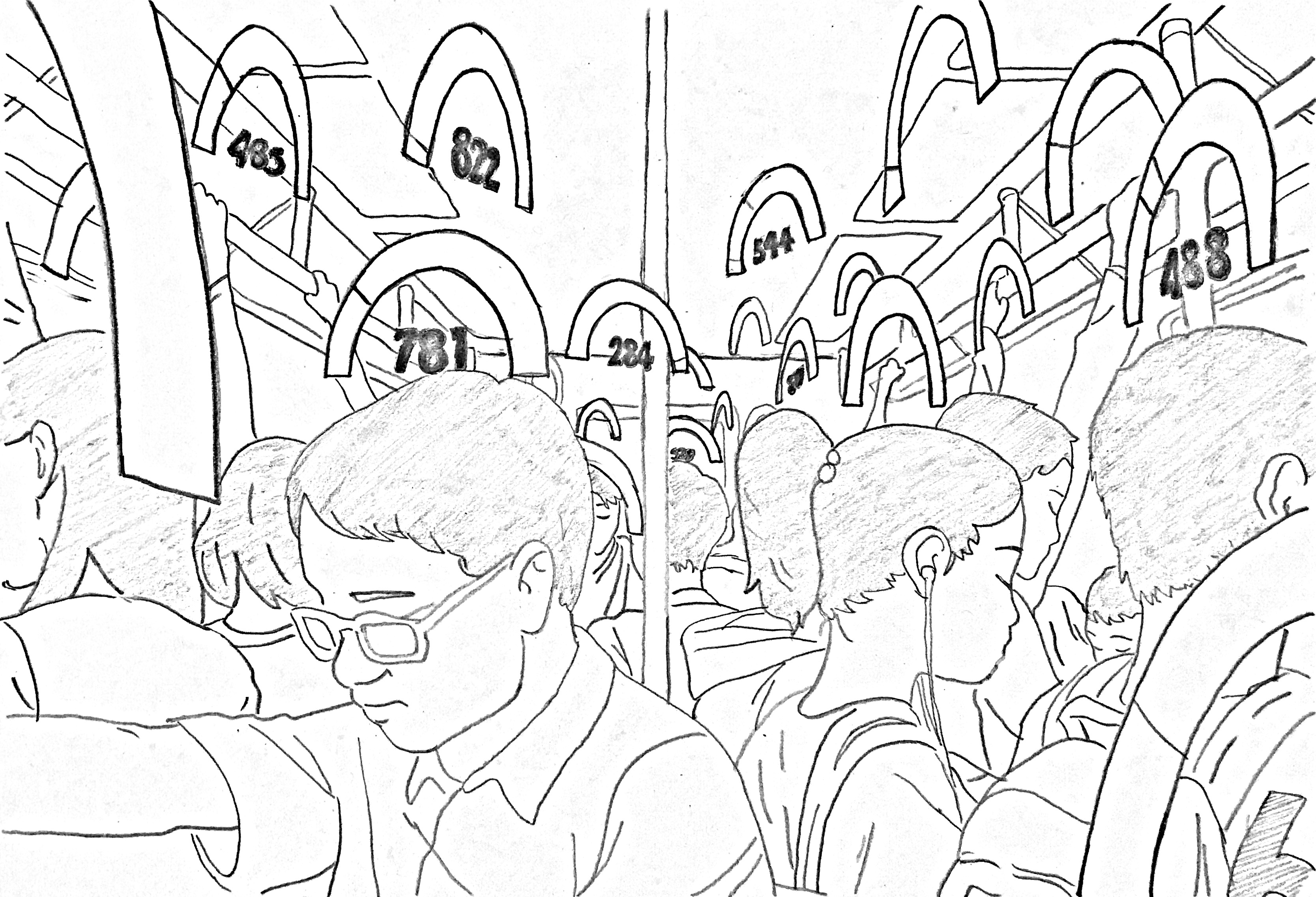
You’re waiting at a crosswalk. It’s Monday after class and you’re in a rush to get home. The light is red, but you see no cars coming, so you walk across the street. When you open your phone later, you see that your credit score has dropped. No, it’s not a financial credit score, it’s a score that rates how good of a citizen you are.
The world you live in is like 1984, Black Mirror, Minority Report, or any dystopian surveillance state. An all-knowing entity tracks, monitors, and rates every move made by its citizens from political views expressed online, things they buy, to how many times a year they visit their grandparents. From a vast set of data points, the government uses a secret algorithm to give each citizen a number. Depending on how “good” a citizen’s actions are, the higher the number and the more opportunities citizens can access.
This isn’t a fictional scenario written up by an American writer to warn his audience of a potential future. This is the reality for 304 million people in China today. The government has devised a system that gives a single numerical rating to them based on almost all aspects of their life. That numerical rating is your “social credit score.” By 2020 the system will be mandatory for all citizens.
Sesame Credit, an entity of the Chinese media giant Alibaba, works with the Chinese government to create a secret algorithm to distill five major factors into a score between 350 and 950 points. Some of the data points include paying bills on time, time spent playing video games, shopping habits, online political alignment, and police and court record. The information comes from one’s phone and government records and is displayed on an app on one’s phone.
That single number can throttle your internet speeds, bar your kids from the best schools, and charge you higher fees when renting bikes. That number could also privilege you with easier access to travel, better jobs, and more matches on dating sites.
The system is dystopian, scary, and squashes personal freedom in the name of building a perfect, hierarchical society in the eye of the government. However, there is some precedent for an expansive program to encourage accountability in China.
Because of China’s rapid economic development and massive size it lacks basic economic infrastructure. There are no credit scores, no social security system, and because of poor regulation, fraudulent products are incredibly common.
Because China is so vast, it struggles to regulate individual companies, with fraud and scam rampant. In fact, only half of signed contracts are kept. For example, in 2008 a Chinese baby powder was found to contain 500 times the recommended amount of toxic chemical melamine. Six babies were killed, and 300,000 fell sick. With the social credit system, companies like the one that scammed and killed babies would get a rating. It would inform consumers and the trustworthiness of companies and combat poor business practices. Social credit scores aren’t limited to companies; government officials and judges are also all given public credit scores. As the government policy states, “It will forge a public opinion environment where keeping trust is glorious. It will strengthen sincerity in government affairs, commercial sincerity, social sincerity and the construction of judicial credibility.”
It’s also important to recognize that China doesn’t have the same legal protections and cultural value of individual freedom as in the United States. Already speech in China, particularly in writing in papers and on the internet, is heavily censored. In the United States, the cultural and historical significance of the Constitution and American culture values the right to individual freedom of expression to an unprecedented degree. The Chinese people are not guaranteed the right to freely express themselves, and it is a reasonable assumption that Chinese culture wouldn’t place the same level of value in the protection freedom of expression. In fact, in history, the Chinese Communist party has taken ambitious steps to censor their citizens with the Chairman Mao’s Cultural Revolution and the slaughter of student protesters at Tiananmen Square.
Some Chinese people have spoken positively about the system, claiming it makes them better citizens. A 32-year old entrepreneur told Foreign Policy, “I feel like in the past six months, people’s behaviour has gotten better and better. For example, when we drive, now we always stop in front of crosswalks. If you don’t stop, you will lose your points. At first, we just worried about losing points, but now we got used to it.”
Ultimately, however, the Chinese social credit system is a blow to individual freedom of expression. Not only does it prevent people from doing what they like in their own time, it also is another way the Chinese government has policed freedom of speech. Criticism of the government can now result in a lower score, which would not only impact someone’s job prospects, but even further impact their online friends’ scores. Those scores can determine access to opportunity, and could be open to manipulation by the government based on what suits it best. A tagline of the project is, “once untrustworthy, always restricted.”
Those branded untrustworthy are severely restricted. Liu Hu, a journalist, was once sued for defamation because of a story he wrote. Because he accidentally paid the fine to the wrong account, Liu Hu was blacklisted. He attempted to contact the judge and pay again, but didn’t get a response. From then on out, Liu Hu became a second-class citizen. With his blacklist status public, he can’t book flights, take out large bank loans, buy certain goods, among a host of other things. While he doesn’t have Sesame Credit, if he did things would be even worse. The algorithm takes into consideration the scores of those you are friends with. Once blacklisted your friends will quickly abandon you.
The Chinese social credit system is an ambitious project to hold people accountable in a massive, under regulated country. It’s also a move to turn a massive country into a surveillance state, watching and influencing every citizen’s move. For now, we will just have to wait until 2020 when all 1.4 billion Chinese citizens are a part of the Black Mirror-like system to see the broader impacts on Chinese society, politics, and economy.







